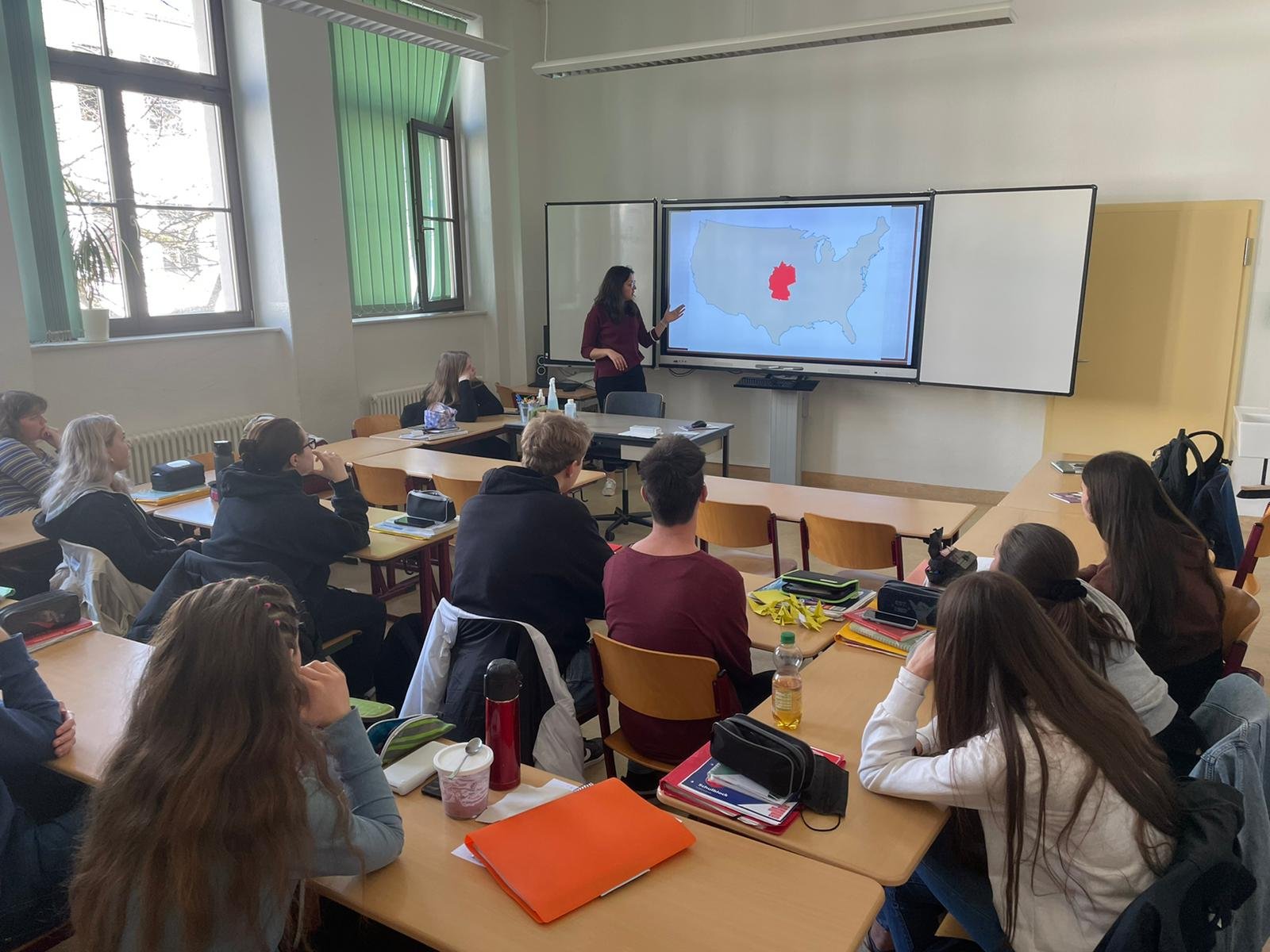Climate Change: TEF Fellow Shares an American Perspective in Chemnitz
On April 11, our Transatlantic Educators Fellow, Emily, visited BSZ für Gesundheit und Sozialwesen in Chemnitz. Read her short report below.
We had some powerful discussions at the BSZ für Gesundheit und Sozialwesen in Chemnitz when I came in to talk about minority groups in the US.
The students and the English teachers invited me back to lead two more sessions about climate change and sustainability through an American lens. Because the US and Germany have had historically different approaches, we spent time discussing different keywords and data related to carbon emissions.
All together, we connected the keywords and data to the major decisions happening in Germany and the US related to managing climate challenges. We found that there are similar challenges in both countries. I really enjoyed our discussion learning about their impressions of the local impact of climate change in Chemnitz and in Saxony.
The students and I realized that our reality is based on being alive during the warmest years in recorded history. I think that the United States could learn much from some of the German approaches to environmentalism and sustainability, so we gathered ideas that the German system could share with the US system. For example, the US recycles only about 35% of its waste, whereas Germany is most efficient and recycles about 68% of waste. The students suggested that more conversations in US school could focus on reusability and recycling products like the German system.
The Transatlantic Educators Fellowship strengthens transatlantic perspectives in classrooms with a resourceful group of transatlantic educators.
The program facilitates a network to connect and encourage transatlantic dialogue at schools in Central Germany.
Find out more about the Transatlantic Educators Fellowship 2022 here!



